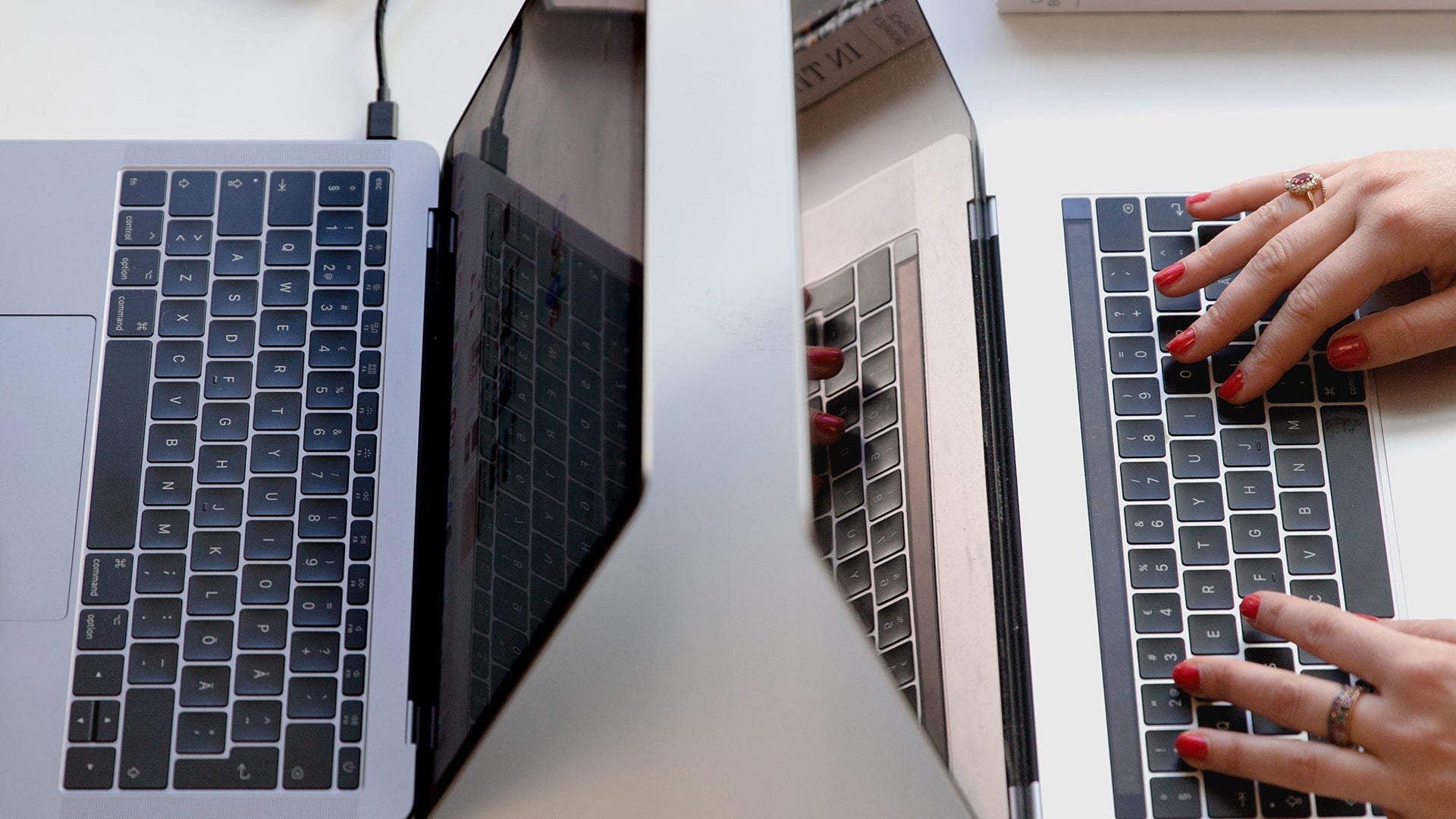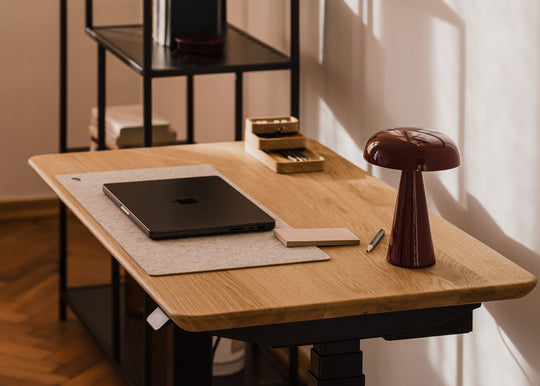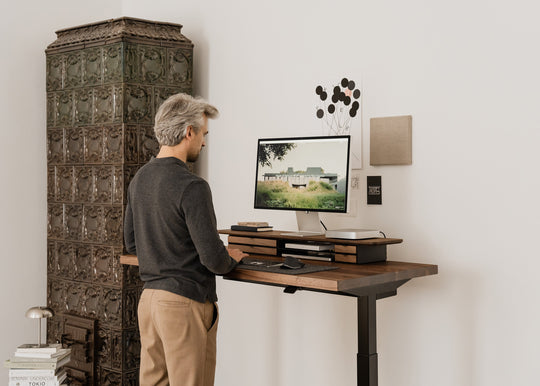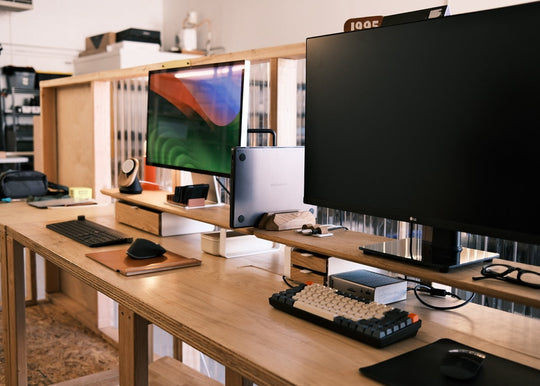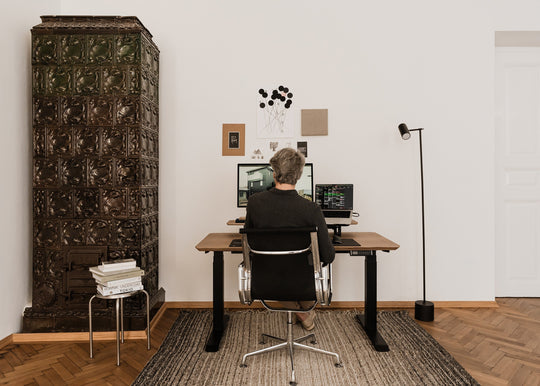Working remotely or going into the office; which model of work is the best fit for parents – especially mothers? Working from home seems like the obvious choice, especially considering the flexibility that comes with it. It is a chance to arrange your day so that you have the time to juggle your work-work, housework, and childcare; the school runs, extracurriculars, homework, and playtime. That sounds like the perfect setup in theory, but is it in practice?

Photo by Kristin Wilson on Unsplash
Pros and cons of working from home
The advantages and disadvantages of remote work have been debated extensively – what some see as a perk, others find irritating and off-putting. For parents, eliminating daily commute is a huge plus – you no longer have to worry about dropping your child off at nursery or school and then rushing to the office and getting stuck in traffic. You also don’t have to take time off every time they catch a cold, unless it’s really serious. Remember that combining your regular job with caring for an ill child is tiring work, especially when you try to give them both a 100% - you can’t pour from an empty cup!
Another benefit of working from home is the increased productivity. According to Stanford University’s economics professor Nicholas Bloom, people who work from home are more effective thanks to the technology enabling remote work.
The flexible hours can be both a blessing and a curse: on one hand, you can arrange your day around your children’s needs; on the other, it can often lead to you working more hours than you would have during a classic 9-5 day. Before you know it, your elastic hours stretch over your whole day – with brief childcare intermissions. It may become difficult to log out knowing you’ll have to, for example, send one more email this evening. Making your entire home into an office space disturbs your work-life balance so create a habit of finishing work at a set time, physically and mentally.

Photo by Luke Peters on Unsplash
Mothers and fathers – different takes on remote work
A mother’s experience of working from home still differs significantly from that of a remotely working father. According to a survey conducted by FlexJobs, women are more likely to choose a remote mode of working but they are also more prone to depression and excessive stress. The outdated stereotype of a wife who singlehandedly takes care of the house and the family, while the husband remains blissfully incapable, unfortunately, still influences dynamics in the workplace and society in general. Hence, mothers are drawn to more flexible jobs so that they can perform their ‘unofficial’ duties as well.
During the pandemic, remote work made it possible for parents to keep working despite schools and nurseries closing. This has, however, revealed some additional disparities: it appears mothers feel more obligated to stop their work and comfort a crying child, give it attention, and care. A man’s professional career continues to bear more weight – women who work full time are still under significant pressure to accept more childcare, family, and housework responsibilities. Chores like laundry, cooking, cleaning, and childcare are the most visible but, by far, not the only disproportionally assigned tasks. Women also carry more mental load – mothers are usually those tasked with remembering all important family business: food shopping, parent-teacher conferences, birthdays, vaccinations, dentist appointments, etc. In the long run, mental and physical overburdening can lead to both parental and professional burnout.

Photo by Malte Helmhold on Unsplash
Seeking balance
Even the most equally split household chores are not enough to prevent burnout and its consequences. Proper, solid rest is essential; preferably amongst nature to help you gain fresh perspective on your daily struggles.
Regular contact with nature offers a multitude of health benefits, especially for those living a sedentary lifestyle or experiencing chronic stress. It helps in decreasing anxiety, blood pressure, and blood glucose levels. This, in turn, lowers chances of cardiovascular diseases, diabetes, and obesity. The immune system starts working more efficiently and the activity in your prefrontal cortex increases which positively impacts things like cognitive function.
A family trip out of town with no phones, television, computers, and other time ‘fillers’ can be a fantastic opportunity to get closer to your family and just be. It is also a good idea to take some time off by yourself from time to time – go on a solo walk in the woods or the park to regain full balance.

Photo by Austin Distel on Unsplash
Balance in three acts
Rita Pater, Geeks Like Us co-founder, leadership coach, and business strategist:
The broad topic of parenthood covers three main spheres I frequently encounter during my coaching sessions with clients who happen to be parents. In the context of relationships, try to maintain balance between three key roles: a parent, a partner, and an individual.
One of the main deficiencies parents struggle with is the lack of time. Becoming a parent launches the relationship into a new stage which, for some, becomes so absorbing it turns a relationship between two people into that of two parents taking care of their child. It is natural that our lives change drastically with the arrival of a child. As long as we are able to fill our time with family activities, we can feel a sense of accomplishment for completing our life mission. But days and weeks turn into months and years. If we ask parents about time, its lack is painfully perceptible and charged with unexpressed losses: the loss of relationship time, of intimacy, of independence, of the space to meet with one’s own circle of friends, pursue one’s own passions projects, or have autonomous ambitions. Wanting to have space for yourself or for your relationship without involving your child is not selfish.
Objectively, couples rarely have the space or the energy to remember about alone time once they go through the transition of welcoming a child. Me and we are instinctively replaced with the baby. It is important to remember that the 100% attention parenthood phase will pass. Oftentimes, to communicate with care, our definitions of partnership, intimacy, closeness, and our individual needs have to be reconstrued. The truth might be devastating to learn – when we become parents, nothing is as it was. But – as a stage in your relationship – it is also temporary, which is why putting effort into our other roles (of a partner and of an individual) is so important. Neglecting your relationship for a few years can cause it to dissolve and cease to exist.
Remote work can be a lifesaver in these situations. It helps us wrangle some precious time from the clutches of our daily schedules. Instead of an hour-long commute, we can spend this time relaxing, going out, making space for ourselves, and talk about something other than the child. Working from home also allows us to create space for something more than parenthood, which, due to the economic climate and societal pressures, can seem like the only role you are allowed to play when you have children.

Photo by Brett Jordan on Unsplash
How to balance?
Start by talking about your roles. Talk about how your priorities have changed and this super intense phase in your parenthood journey will pass. Couples who find time for themselves have dates, conversations, walks, and their own separate activities etched in their calendars. How do you go on a date as a parent? Most importantly, try to avoid all topics related to parenthood and blissfully abandon the parental role for one or two hours.
Making space for a having breakfast, coffee, or dinner together can be hugely refreshing for two parents. It can remind us about why we got into this relationship in the first place, and why we value our connection. Making this into a ritual (just every 2-3 weeks!), can be something that ends up saving our relationship and offsetting the pressures of societal expectations. It will stop us thinking in terms of what we ‘should’, or are ‘expected’ to, do and open us up for experimenting, indulging our curiosity, and living a fuller life.
Created together with Geeks Like Us
Sources:
https://www.flexjobs.com/blog/post/men-women-experience-remote-work-survey/
https://www.vox.com/recode/23129752/work-from-home-productivity
https://www.vox.com/recode/22568635/women-remote-work-home
https://www.ncbi.nlm.nih.gov/pmc/articles/PMC8125471/
https://www.researchgate.net/publication/343650562_Mothers_Covid-19_and_Work_at_Home
https://www.ncbi.nlm.nih.gov/pmc/articles/PMC9122150/
